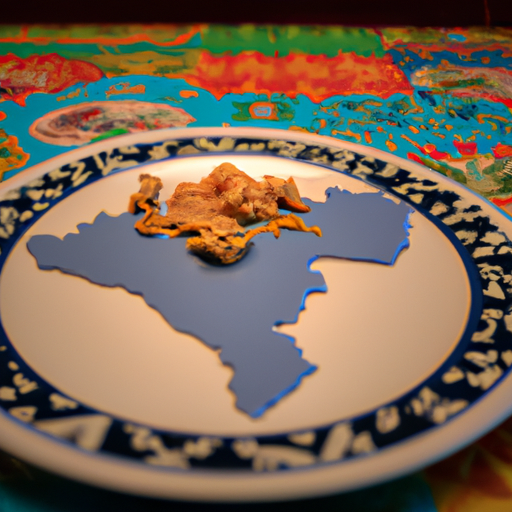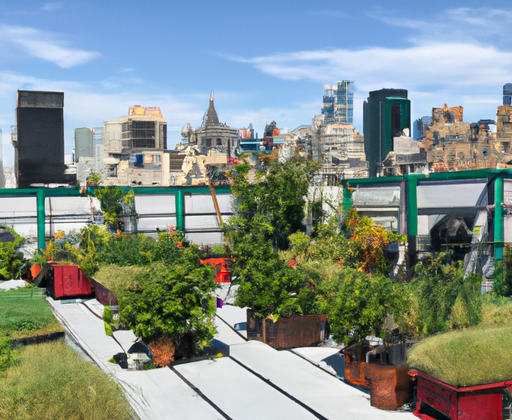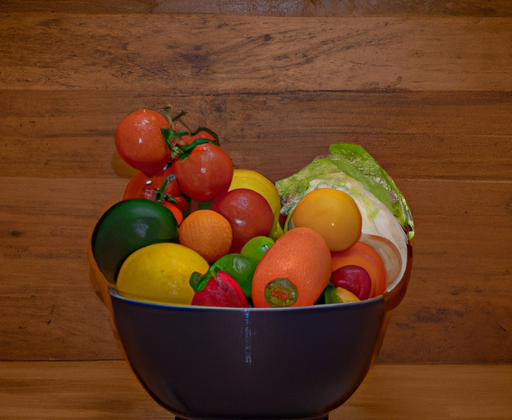Introduction
Food and politics aren’t two words that you often hear in the same sentence, but they’re actually more connected than you might think. Food and politics are intrinsically linked as government policies have a direct impact on how food is grown, processed, distributed and consumed. When it comes to food, governments play a critical role in determining what is available and how much it costs us. Understanding this relationship between food and politics can help us make better decisions about the food we eat.
From agricultural subsidies that prop up certain industries to food labeling regulations that impact what information consumers see on the labels, government policies have a huge influence on our diets. Whether you realize it or not, politics have a direct effect on the food industry and what foods are available to us. Fast food consumption has been heavily impacted by powerful political lobbying from the restaurant industry, while the organic vs. processed debate has been shaped by government programs and regulations. Education also plays an important role in helping individuals understand why and how their choices may be politically motivated. Teaching nutrition in schools is one way that governments can directly influence how people consume food. By promoting healthy eating habits and teaching citizens about the benefits of different dietary choices, governments can shape the way people engage with the food system. All of these examples demonstrate just how intertwined diet and governance really are. As consumers, it’s up to us to be aware of the political connections between food and politics, and use this knowledge to make informed decisions about the food that we consume.
Impact of Government Policies on Food
Man, when it comes to what we eat, governments sure can pull some strings! From agricultural subsidies to food labeling regulations and health care reforms – they’ve got their hands all over what goes into our bellies. It’s enough to make your head spin.
Let’s start with those agricultural subsidies. Governments will often provide monetary rewards for farmers and ranchers who are working to produce different crops or specific goods. These subsidies aim to ensure that farmers have the resources to continue their work and have an economic incentive to produce certain goods. This can be a double-edged sword though; as it encourages large-scale production of certain goods, but can also lead to economic monopolization.
Food labeling regulations are another way governments can play a role in what we consume. By requiring accurate ingredient labels and nutrition facts, consumers are able to make informed decisions about what products they put into their shopping cart. Folks try to look out for things like cholesterol, sodium, and sugar levels. With access to this information, it’s easier to make smarter decisions about what food to choose.
Health care reforms are an important way governments can shape diets and improve public health. Whether it’s programs to increase access to healthy foods or incentives for healthy lifestyle choices, these measures can greatly benefit communities that lack nutritional resources. It’s a game changer for folks who don’t have the same access to goodies as others might.
Political Influence on Eating Habits
When it comes to what we eat, our government has a huge influence. From agricultural subsidies to food labeling regulations and healthcare reforms, the way our elected officials shape policy has a direct effect on what we put in our bodies. But it’s not just laws that are impacting our eating habits — political pressure has become a driving force of what we choose to buy from the grocery store.

Take fast food for example. While convenience always plays a role in which restaurants people frequent, the cost-effectiveness of those restaurants is often a major factor in the decision-making process. When politicians pass legislation to raise the minimum wage and cut taxes, it makes dining out more affordable and therefore more attractive. And when elected leaders fail to do their job and pass regulations that would protect consumers from unhealthy foods, they’re creating an environment where it’s easy to grab a quick burger and fries over something nutritious.
The same goes for organic vs. processed foods. The cost of organic produce can be too high for many people’s budgets, but when the government provides subsidies to farmers to grow organically, those prices start to drop — making healthier options much more accessible. Conversely, when big business lobbies against such legislation, or if politicians block new food safety regulations, it only serves to make cheap processed foods easier to get ahold of.
The Role of Education
When it comes to addressing food and politics, one of the most critical aspects is education. After all, if people don’t know how to make healthy dietary choices, no amount of regulatory reform can change their habits. And that’s why investing in education initiatives – both inside and outside of the classroom – is a must for any government looking to establish a healthier food ecosystem.
Take educating kids about nutrition, for example. Teaching young people the basics – like the importance of whole foods, fresh produce, and limited processed ingredients – is essential for them to develop a balanced and nourishing diet. That’s why many school districts are introducing mandatory nutrition courses into their curriculum, as well as providing hands-on activities and cooking demonstrations.
Then there are the educational efforts being made outside the classroom. Governments have been increasing their investment in digital campaigns and incentives designed to help individuals understand the nuances between better and worse food choices. Whether it be through advertising or sources like online blogs, these initiatives are designed to further advance public knowledge on the subject.
At the end of the day, food and politics go hand in hand; what we eat reflects sociocultural influences, and vice versa. And in order to create a more sustainable and nutritious food system, governments need to invest creative and comprehensive approaches to educating their constituents. By doing so, they’ll be able to ensure that future generations can enjoy healthier, more delicious meals for years to come.
Conclusion
Well, there you have it — the wide-reaching influence of food and politics, and the many ways government policies, dietary habits, and education can interact. It’s a complex topic, but understanding it is key to making informed decisions about food consumption in a society that increasingly relies on processed and fast foods.
Politics have a tangible impact on what we, as citizens, are able to eat and how it’s produced. Until governments take steps to ensure more health-conscious solutions, such as subsidies for organic produce, labeling regulations for genetically modified organisms (GMOs), and healthcare reforms that focus on preventative nutrition, citizens must do their best to educate themselves on healthy eating.
It might be easy to pass the buck on to politicians and big business when it comes to diet, but ultimately it’s up to us, the individuals, to make smart choices and promote healthy consumption. Education is critical here, from teaching good nutrition in schools to providing incentives for healthier meals at home. We all have a responsibility to choose the path toward healthy eating.
Politics & Diet FAQ
What is the political power of food?
Food is a powerful force, not just in the kitchen but in the political arena as well. Governments around the world recognize that how people eat can have significant economic and social impacts. Every decision about food–from what to eat and when, to how to produce it and who should pay for it–has a political element.
In modern times, food has become an important tool for governments to increase their influence, balance power, and affect people’s lives in far-reaching ways. From international trade agreements to welfare benefits and food safety standards, food is a powerful way to shape politics and empower people.
At the same time, food is often used as a weapon of control. Governments have used it to manipulate public opinion, stifle dissent, and punish political opponents. It can be used to reward loyalty and punish disloyalty. Governments have even used food as a form of warfare, cutting off food supplies to starve out populations and break their will.
The political power of food has been growing exponentially in recent years. With more governments recognizing the importance of food in shaping public opinion, more attention is being given to food policy, creating an environment where the politics of food are increasingly intertwined with the politics of governing.
In short, food is an important tool in the political landscape. Governments use it to gain and maintain power, shape public opinion, and cause real-world consequences. As such, it is increasingly important for citizens to be aware of how their diet and politics are interconnected, and how their choices in the dining room could have far-reaching effects.
What is the definition food governance?
Food governance is the set of policies, laws, regulations and operational strategies that shape the production, access, availability, affordability and sustainability of food. It is an interdisciplinary field that examines how government decisions shape our food systems and how those systems, in turn, influence public health and the environment. From trade policies and agricultural subsidies to food labeling and nutrition regulations, food governance affects all aspects of our diets and food production. Our local, regional, and global food systems, and the interconnected public policies that support them, are rooted in larger economic, social and political trends.
The food governance landscape is complex and ever-changing. As governments grapple with the health and environmental consequences of our current food systems, they’ve begun to embrace a more holistic approach that takes into account the economic, social, cultural, political and natural dimensions of food production and consumption. This approach is often referred to as an agro-ecological or systems-based approach, and involves examining how different elements of a food system—from production and trade to consumption and waste—interact with each other and with environmental, economic and social factors.
At the same time, governments are also exploring more sustainable models of food production and consumption. This involves looking at the ways in which food production and consumption techniques, such as organic farming and permaculture, can help address existing environmental and health concerns. Additionally, governments are exploring the possibility of developing systems that reward producers for employing more sustainable practices and encourage consumers to seek out and support those producers.
As governments continue to grapple with the complexities of food governance, it’s important to keep in mind that our food choices are also a reflection of our values. By considering the long-term impacts of our food systems, we can work together to create healthier, more sustainable food systems that promote public health and environmental stewardship.
What is the interconnection between food and identity?
As a long time student of both food and politics, I have grown to understand the tight connection between the two. And when I take a deeper look, I’ve come to realize that food is often linked to identity, whether that’s a cultural heritage or a different lifestyle choice.
Food is a big part of how we define ourselves. It can relay a sense of nostalgia, bring people together, and serve as a way to express ourselves. For example, a person’s relationship to food can be a reflection of their beliefs, whether that’s their socioeconomic background or a religious dietary restriction. And depending on where you come from, regional dishes might be tied to cultural heritage, political history, and social practices.
At the same time, food can carry symbolic weight in politics. It’s often used to evoke a sense of patriotism, unify disparate communities, or even score political points. Governments have long used food as a way to shape public opinion, ranging from rationing during times of war, to subsidizing certain crops to boost the domestic economy. On the other side of the spectrum, food has also been used to protest against oppressive regimes and advocate for human rights.
So in essence, food and identity are inextricably linked. Whether a particular dish evokes a sense of pride and nostalgia, or a sense of rebellion and dissatisfaction, it can be a powerful conduit for political dialogue. That’s why it’s so important to understand the intersection of food and politics, to get a better grasp of where we come from, and where we’re heading in the future.

